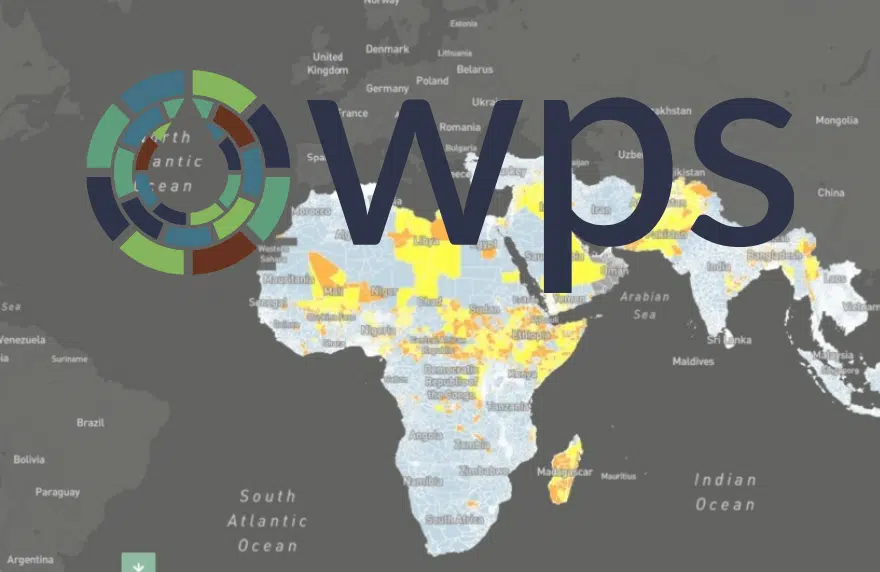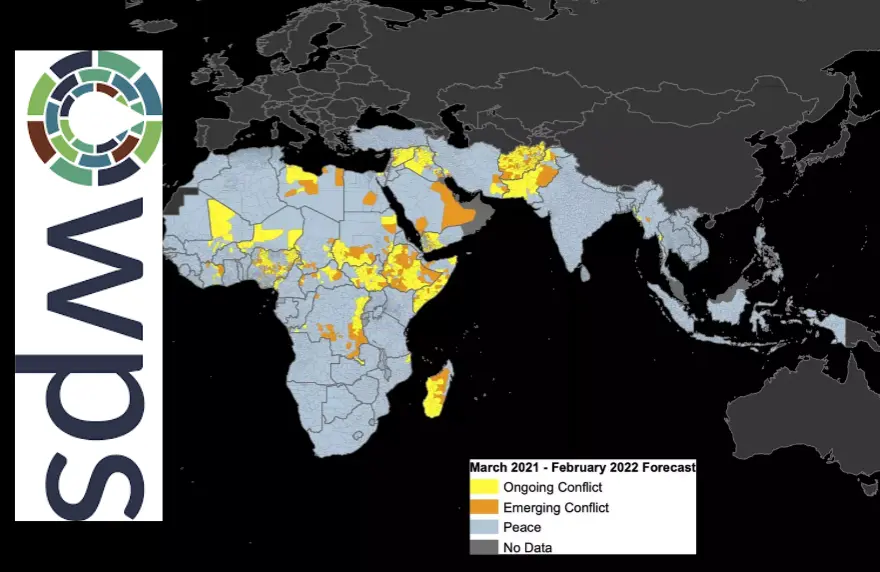The WPS Global Early Warning Tool provides the initial step in a multi-step process to analyze water-related conflict risks, employing machine learning to predict conflict over the coming 12 months in Africa, the Middle East, and South and Southeast Asia. The data is open source, providing a basis for further in-depth research.
This quarterly update reflects some of our latest projections and accompanies our updated map, allowing us to place emphasis on some of the conflict hotspot that we are tracking in these regions:
- The Sahel: we are predicting emerging or ongoing conflict throughout much of the Sahel region of Africa for the period June 2020 – May 2021. The Sahel region – comprised of Burkina Faso, Chad, Mali, Mauritania, Niger, and Nigeria – has been historically prone to drought and violence among ethnic groups vying for scarce resources. But changes in climate (including increasing temperatures, and more extreme, erratic, or shifting rainfall patterns), decisions about water allocation, widespread land degradation, burgeoning regional populations, and increasing activity by a variety of armed groups – be they criminal networks, Islamic insurgents, or ethnic self-defense militias – have greatly destabilized already tenuous conditions. The Sahel region is a tragic example of how increasing resource scarcity and violent extremism can come together to further undermine security in fragile states.
- Southern Africa: while the Sahel exemplifies a region already beset by cycles of violence driven in part by resource scarcity and climate change, parts of southern Africa may exemplify a region on the cusp of such violence. Parts of this region have been hit by some of the worst droughts and flooding events in recent history and are exhibiting signs of severe societal stress that may precede large-scale violent conflict. In this quarterly update, the WPS Global Early Warning Tool predicts continuation of conflict in parts of Mozambique, a country heavily impacted by recent drought and flood events, and Zimbabwe, currently facing crisis food insecurity conditions across much of its territory.
- Middle East and Central Asia: the WPS Global Early Warning Tool is predicting continuation or expansion of conflict in southern Iraq. In Iran, it is predicting conflicts to continue – and new ones to emerge – in western Iran, all along the border with Iraq, and along Iran’s border with Afghanistan and Pakistan. The tool is also predicting a continuation and expansion of violent conflict in the Tehran region. In Afghanistan, the tool is predicting conflict to persist throughout most of the country, and new conflict to emerge in the northeastern, central and southwestern areas.
- Longer term outlook: we have identified a couple of countries where the potential for water-related tensions to boil over into violence seems high:
- In many parts of the Democratic Republic of Congo, citizens do not have access to running water. Access to water does relate directly to deadly violence, at least not yet, but recent protests and violent demonstrations against water shortages have been recorded.
- Myanmar does not generally face significant risks due to water scarcity. Nevertheless, one significant source of water-related tension is the possible construction of large dams on Myanmar’s main rivers.
About the WPS and Global Early Warning Tool
Water, Peace and Security (WPS) Partnership. The WPS Partnership offers a platform where actors from the global development, diplomacy, defense, and disaster relief sectors and national governments of developing countries can identify water-related conflict hotspots before violence erupts, begin to understand the local context, prioritize opportunities for water interventions, and undertake capacity development and dialogue activities.
The Global Early Warning Tool. Our Global Early Warning Tool provides the initial step in a multi-step process, employing machine learning to predict conflict over the coming 12 months in Africa, the Middle East, and South and Southeast Asia. So far it has captured 86% of future conflicts, successfully forecasting more than 9 in 10 “ongoing conflicts” and 6 in 10 “emerging conflicts”.




